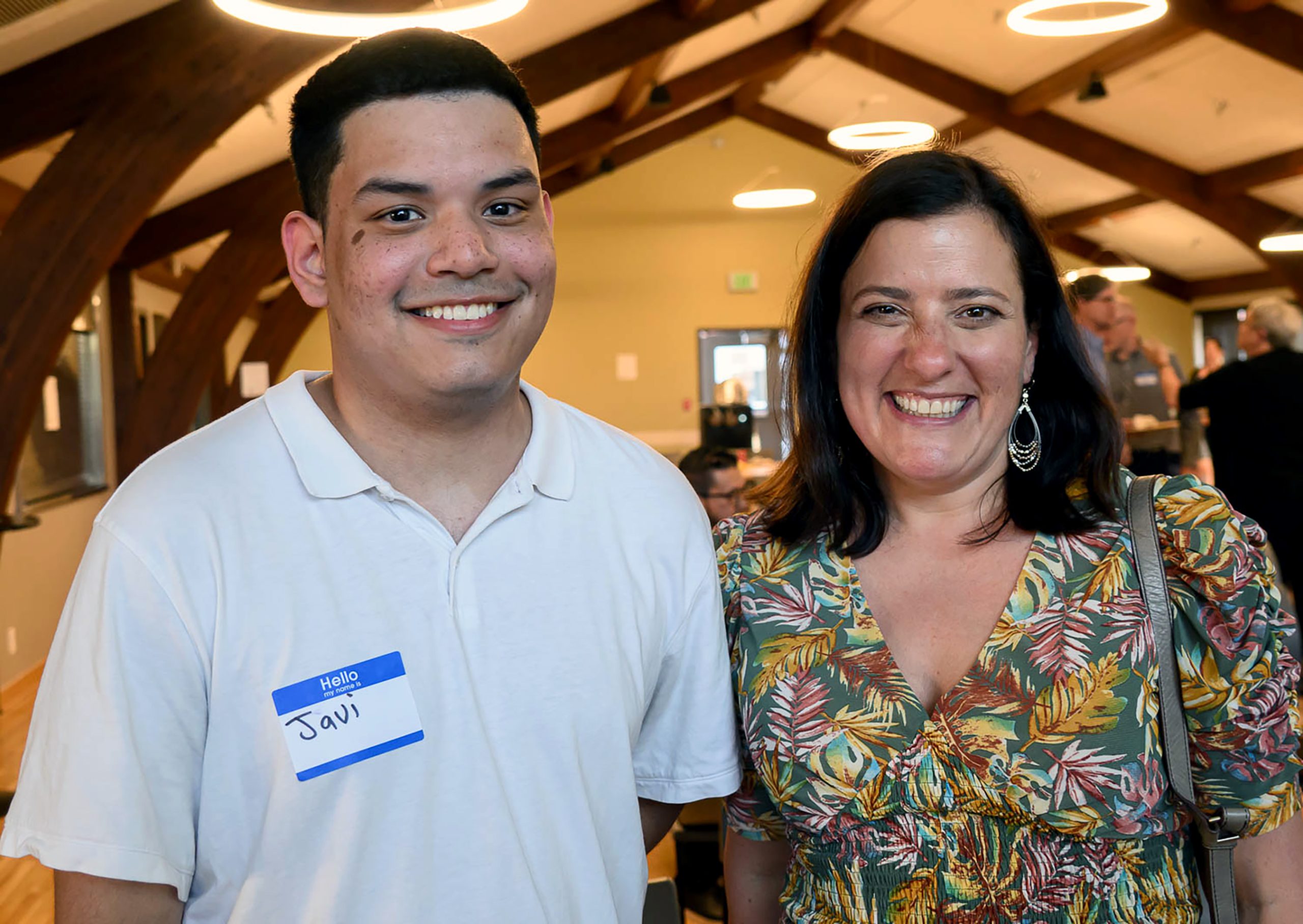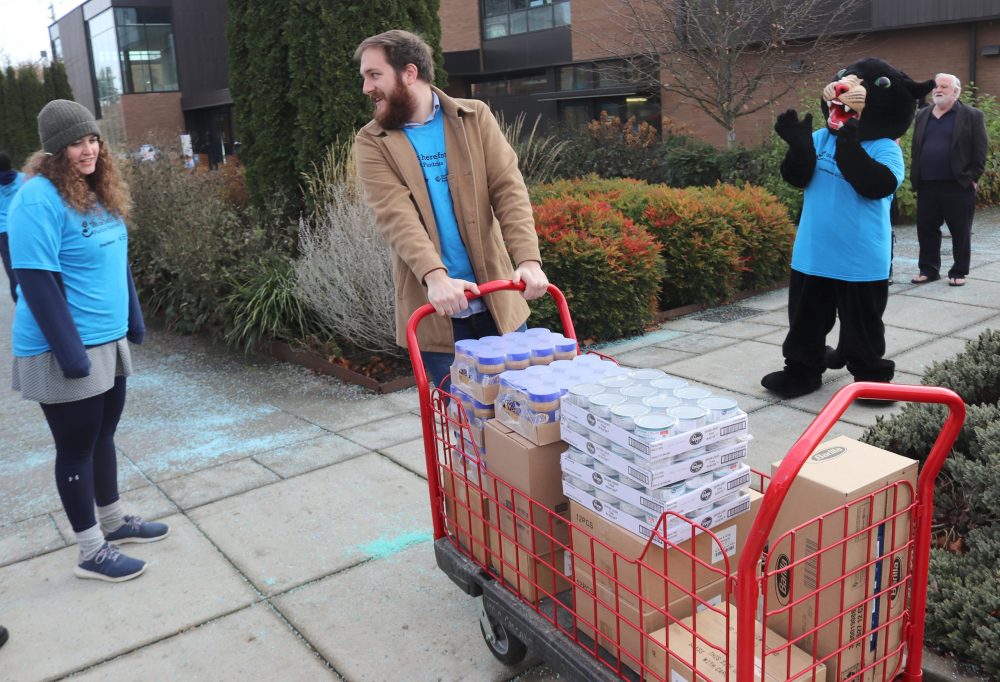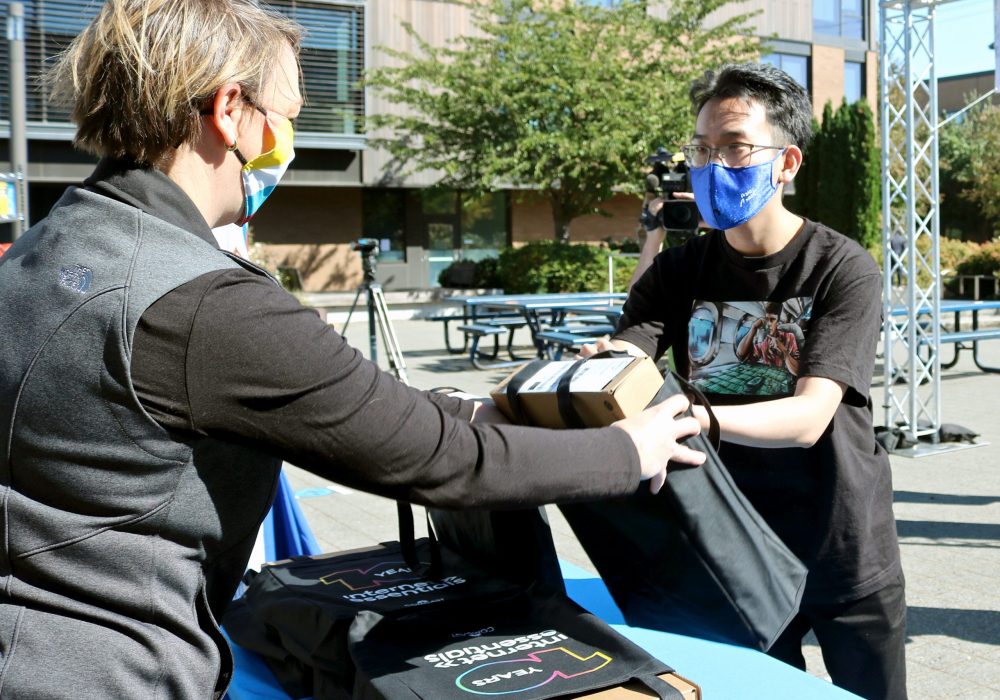This content was published: July 6, 2023. Phone numbers, email addresses, and other information may have changed.
PCC earns a $867,839 grant from the US Department of Ed for basic needs services
Photos and story by James Hill
Oregon college students face high levels of basic needs insecurity. Many students struggle to afford food and housing, utilities, transportation and childcare while pursuing their education and working towards careers that will pay them a living wage. The wrap-around services provided by community colleges, and the ability to connect students to services, are critical to meeting those needs.
As a result, Portland Community College has been awarded a $867,839 grant from the U.S. Department of Education’s Basic Needs for Postsecondary Students Program. This grant will span the next three years, beginning on Sept. 1. It will focus on student mental health, housing support, increased promotion of basic needs resources, and trauma-informed care training for PCC staff and faculty.
“These grant funds could not have come sooner for our students and will improve awareness and access to basic needs support at the college, with the intentional focus on mental health and housing,” said Lauren Smith, executive dean of PCC’s Student Belonging & Wellbeing. “The trauma-informed care training for staff and faculty will be the perfect complement to this additional support, and will include an emphasis on holistic wellbeing and enhancements to the way we identify, refer, and serve students who may be experiencing basic needs insecurity in any area.”

The Strategic Plan: Belonging
The 2020-2025 Strategic Plan prepares the college for the future of higher education. Part of the plan is creating a sense of belonging and well-being for every student and staff, ensuring access to key resources, develop intercultural competencies, and support a culture where everyone feel acknowledged, inspired and supported.
PCC’s project will be used to address both the housing and mental health needs of students. A housing navigator will be hired to assess the need, coordinate the college’s response to the housing crisis, liaise with community-based organizations and housing providers, and help connect students with resources available in the community.
Funding will also be used to hire a mental health provider, who will oversee evaluations for students in need of a formal diagnosis in order to qualify for services with external providers. This will fill a large gap in PCC’s counseling services while also alleviating the caseload of existing counselors by referring students who are in need of more complex mental healthcare than the college can provide. Finally, the grant will allow for the training of PCC employees about trauma-informed approaches to identify and support students with basic needs insecurity.
According to a 2020 Real College Survey conducted by the Hope Center at Temple University, 64% of PCC students say they experience some sort of basic needs insecurity and 41% reported that they had experienced food insecurity in the previous 30 days.
Due to feedback from students, PCC has built a foundation of resources and services to address its students’ basic needs. Students can visit the college’s basic needs webpage and get support navigating resources, a map of assistance programs in their area, and calculate their eligibility for financial help and resources.
This ties into the overall student support offerings that college has established like food pantries, scholarships and financial aid, counseling, housing, legal services and transportation solutions. PCC is also moving toward partnering with community organizations to establish affordable housing units. The PCC Portland Metro Workforce Training Center redevelopment in NE Portland will have 84 units available to qualifying students and President Dr. Adrien Bennings recently helped PCC partners open a 72-unit complex near the Southeast Campus.
“This partnership has created an opportunity for our students to have access to affordable housing,” said Dr. Bennings. “When you see the situation across our state, this is going to go a long way in creating some resolution so that basic needs can be met.”


